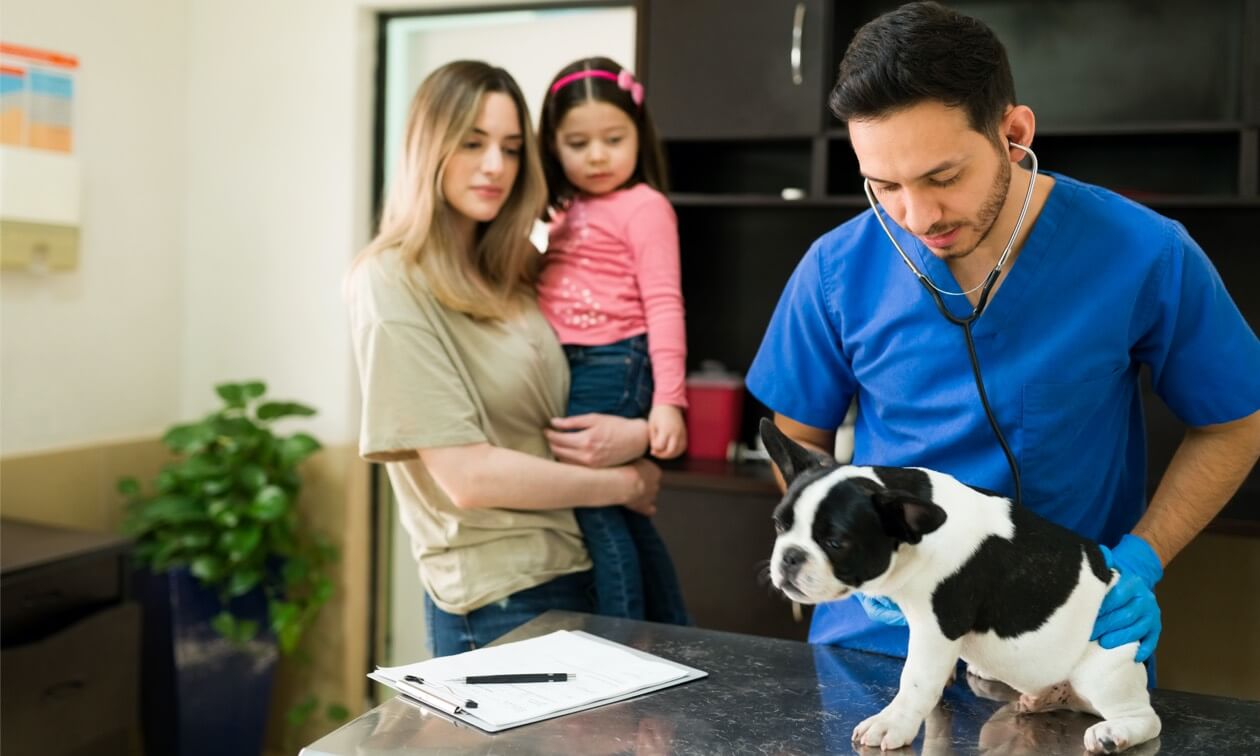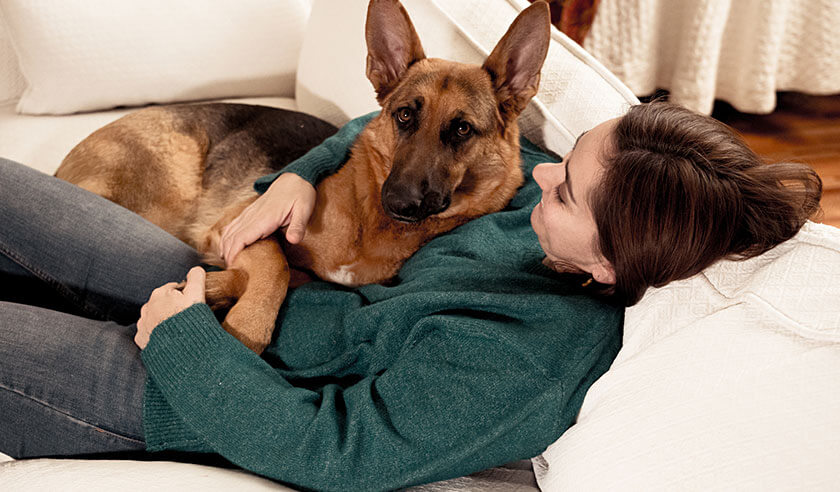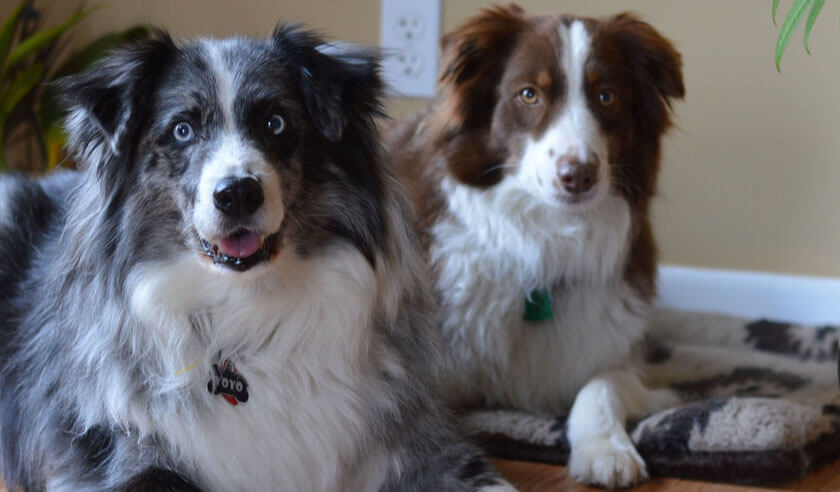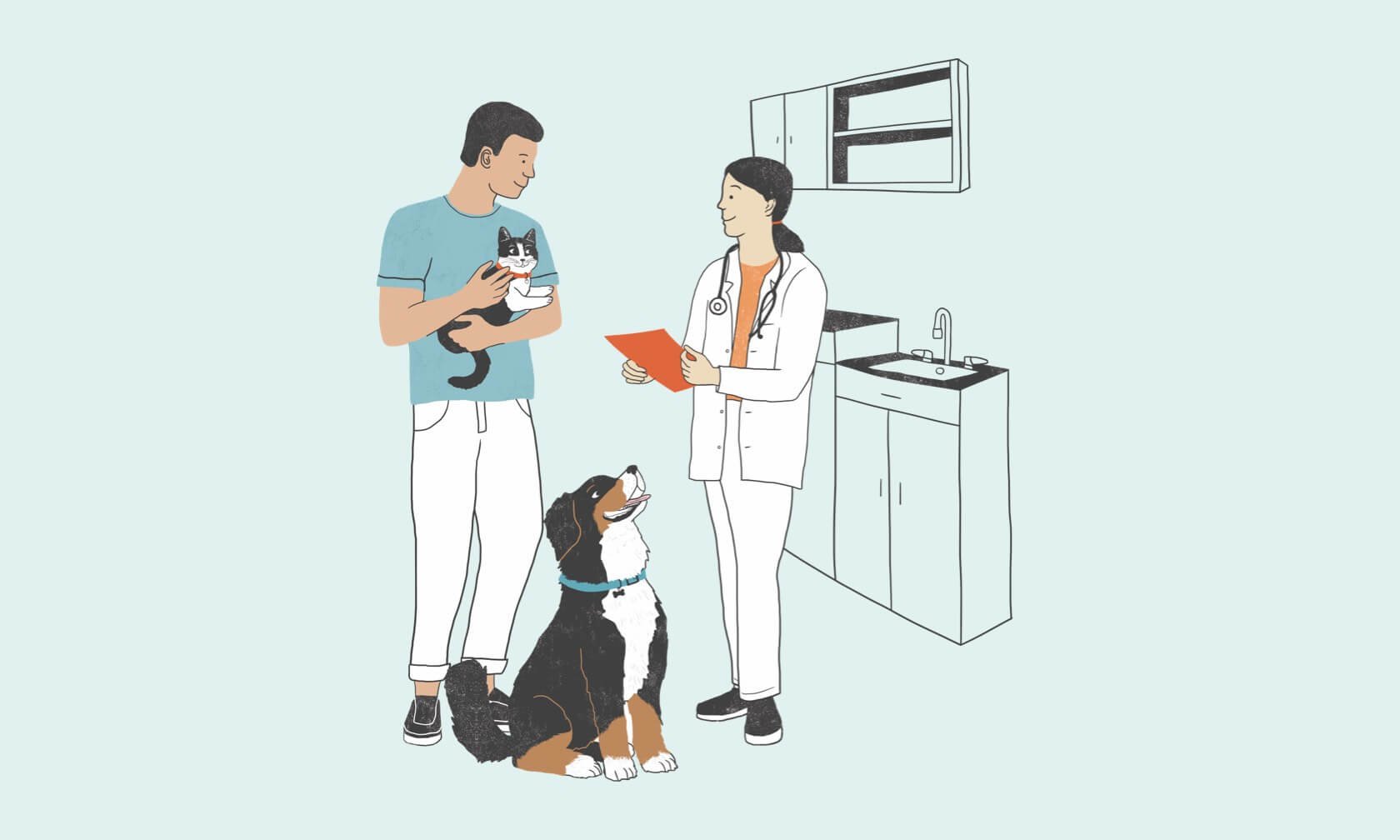Dogs, like humans, get a cough from time to time. Sometimes it's nothing to worry about, but there are instances when your dog's cough could indicate a more serious health condition that requires veterinary care.
It can be helpful to understand common medical issues that can cause your dog to cough, when to see your veterinarian, and what your veterinarian needs to know to diagnose the problem. Read on to learn why your dog is coughing.
Diagnosing Your Dog's Cough
If your dog is persistently coughing for more than a couple of days or has any other symptoms, it's important to have them evaluated by a veterinarian. This is particularly critical if the coughing is associated with shortness of breath, swelling of the limbs or abdomen, and/or weakness. These are potential signs of serious medical issues that require immediate care.
Diagnosing a cough typically begins with your veterinarian taking a detailed history. They'll want to know how long the cough (and other symptoms) have been present, when it occurs, what it sounds like, what triggers it, etc. It's helpful to take a video of your dog coughing for your veterinarian. Following a complete physical examination and listening to the heart, lungs, and upper airways, your veterinarian may recommend additional diagnostic tests, including:
- Blood tests
- Stool tests
- Urinalysis
- X-rays of the chest and abdomen
- Echocardiograms
- CAT scan or MRI
- Blood pressure tests
- Analysis of fluid samples from the airways
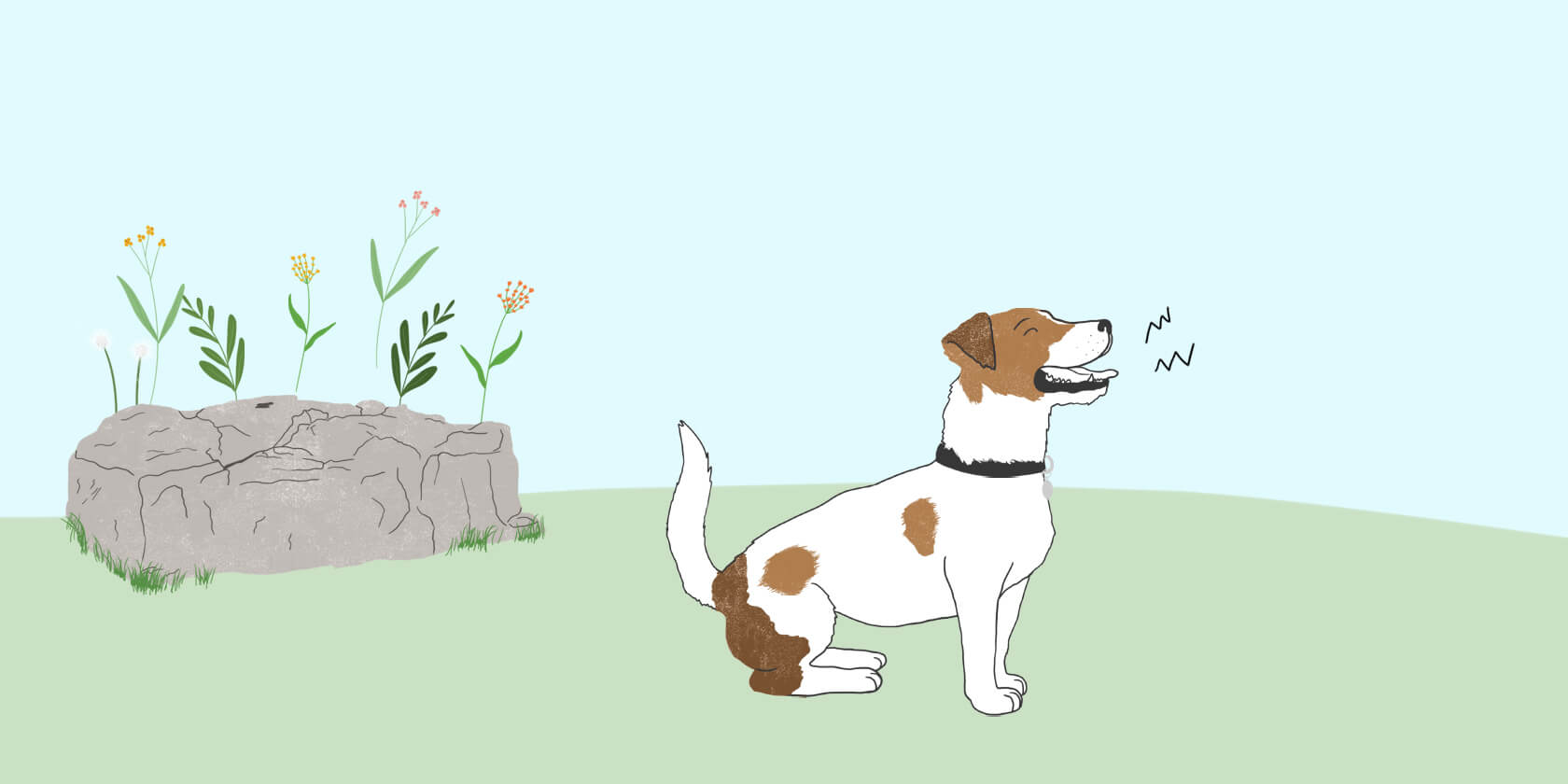
Understanding Your Dog's Cough
A cough is generally considered acute if it has been present for less than two months, while chronic coughs are present for at least two months or more.
Coughs can also be explained with descriptive terms that help pinpoint where they may be coming from. These terms may help you describe your dog's cough to your veterinarian.
- Dry
A hacking and persistent cough with a raspy sound. Your dog will act as if something is stuck in their throat. - Moist
A wet and phlegmy cough that sounds like your dog is gargling and hacking on mucus. - Honking
A deep, dry cough that sounds like a goose honking. - Productive
A cough that clears mucus and/or other foreign materials from the airways.
Make note if the cough is associated with trouble breathing or if you notice abnormal breathing sounds, such as wheezing, low-pitched snoring, or high-pitched sounds. Lastly, be aware of events, such as excitement, exercise, eating, or drinking that may cause a cough.
Common Causes of Coughing in Dogs
Dogs cough for many reasons. A periodic cough to clear their throat after sniffing the ground and digging in the dirt is normal. But when your dog's cough becomes more regular and persistent, it is time that they visit their veterinarian.
Here are some common causes for a dog to cough:
- Tracheal Collapse
This condition occurs when the windpipe becomes weakened and collapses, causing a narrowed passageway for air. As the air is forced through the narrow opening, a honk-like sound is produced, referred to as a "goose honk". It often affects toy and small breed dogs. Many dogs with this condition have exercise intolerance, heat intolerance, difficulty breathing, and may gag when eating and drinking. Some cases can be severe enough to require surgery. - Kennel Cough
With kennel cough, or infectious tracheobronchitis, the dog’s airways are inflamed and infected. It can be caused by several different viruses and/or bacteria, or a combination. The cough is often deep, dry, hacking, and raspy. Some dogs also sneeze, snort, and gag. Dog-to-dog contact, aerosolized respiratory secretions, or contact with contaminated surfaces are ways that it spreads. Symptoms can develop after dogs have been boarded or spent time at doggie daycare, training classes, groomers, or dog parks. There are vaccines for a bacteria, Bordetella bronchiseptica, to help lessen the severity of symptoms and, in some cases, prevent it. - Heartworm Disease
Heartworm disease can cause a mild and persistent cough initially which can worsen as the disease progresses. Typically, dogs with heartworm disease will lose weight and have a decreased appetite. Fortunately, there is heartworm prevention available to avoid this disease, and it should be given year-round. - Canine Influenza
Like people, dogs can get the flu, though different types of flu virus affect dogs than people. This respiratory infection can cause coughing for up to 14 days and is contagious to other dogs, sometimes even before the infected dog is showing symptoms. Speak to your veterinarian about vaccination options. - Heart Disease
If the heart becomes enlarged and compresses the major airways, or fluid backs up in the lungs because the heart isn't pumping properly, dogs develop a cough. The cough is usually soft, continuous, and is often worse at night. Evaluation and treatment for heart disease in dogs may require referral to a veterinary cardiologist. - Pneumonia
This condition occurs when the airways of your dog's lungs become inflamed due to bacteria, viruses, inhalation of foreign material during vomiting, or some metabolic conditions. The cough is often moist and soft, producing phlegm. Other symptoms include fever, lack of appetite, and lethargy. In some cases, it can be severe enough to require hospitalization. - Environmental Irritants or Allergens
When your dog's immune system reacts to irritants or allergens, such as dust, pollen, or smoke, it can lead to coughing. Try to avoid exposing your dog to dusty conditions and smoke, and speak to your veterinarian about allergy testing and ways to lessen the impact of allergens on your dog. - Foreign Body
If a foreign body gets lodged in your dog's throat or trachea, they will attempt to remove it by coughing. Always examine your dog's mouth and throat when they begin to have unexplained coughing. - Parasites
When some parasite larvae, such as lungworms, roundworms, or hookworms, migrate to the lungs, they can trigger dogs to cough. - Fungal Infections
These irritate the nose and upper airways, triggering a cough and sometimes nasal discharge and nosebleeds. There may be swelling and pain in the nose region in some cases. - Cancer
Lung cancer can cause dogs to cough. Treatment may require a referral to a veterinary oncologist.
Reverse Sneezing Isn't Coughing
What exactly is a dog's reverse sneeze? Instead of blowing air out with a normal sneeze, air is rapidly inhaled through the nose, creating a snorting sound. During moderate episodes, some dogs appear as if they can't breathe and will gag at the end. This can sometimes resemble a coughing sound, and many pet owners mistake reverse sneezing for coughing.
It’s a common problem with small dogs and brachycephalic breeds, usually set off by some irritant, excitement, exercise, foreign object, etc., that causes spasms of the throat and soft palate.
When you first experience your dog reverse sneezing, it can be scary. It usually doesn't require a visit to a veterinarian. However, if the episodes become relatively frequent and severe, you should consult with your veterinarian. If you are unsure if your dog is reverse sneezing or coughing, take a video for your veterinarian.
ZPC-01956
